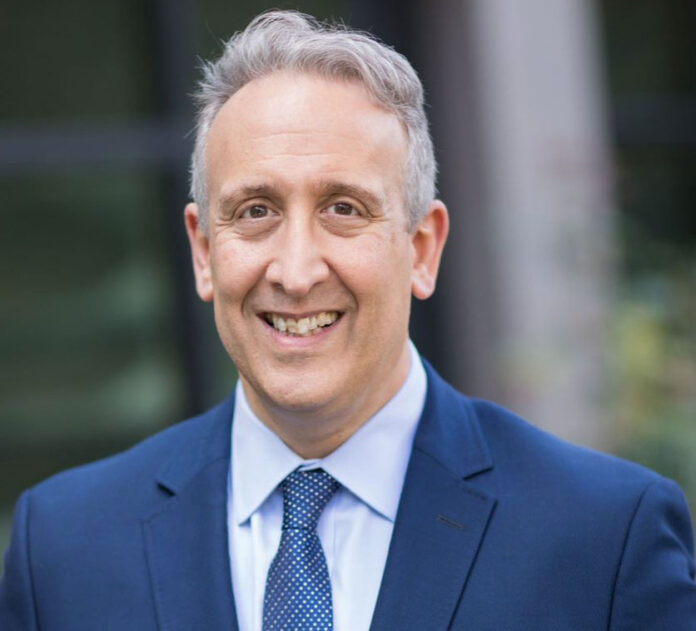SEATTLE– Today, the Access to Advanced Health Institute (AAHI) announced that it has received a $26 million donation from the Chan Soon-Shiong Family Foundation (CSSFF) to fund development of next-generation vaccine and therapeutic solutions that are accessible to patients around the world, regardless of geography or socio-economic status. This catalytic funding will allow AAHI’s dedicated team of expert and innovative scientists to combat the world’s deadliest diseases.
AAHI’s formulations and RNA immune-enhancing platforms enable more potent, broadly effective, and longer lasting vaccines and immunotherapies by improving the body’s natural response to disease. As new coronavirus variants emerge due to the lack of vaccination in rural communities and low- and middle-income countries, immunity wanes for people who have already received three doses of the mRNA COVID vaccine. Investment in efficient next-generation solutions is critical. The CSSFF donation will help to support further development and clinical testing of immune-enhancing technology that is temperature stable, can protect against emerging variants, and stimulates not only broadly neutralizing antibodies, but also T cells that actively destroy infected cells. AAHI’s adjuvant and RNA technology can be applied to infectious diseases, cancer, allergies, fungal and parasitic infections, and other non-communicable diseases.
The donation comes on the coattails of the commencement of a phase 1 clinical trial in Thailand, evaluating a plant-based adjuvanted protein SARS-CoV-2 vaccine candidate using AAHI’s 3M-052-Alum adjuvant formulation, and the recent approval of a phase 1/2 clinical trial in South Africa to evaluate AAHI’s self-amplifying RNA COVID vaccine candidate.
AAHI has also committed to enable local production by transferring technology and know-how for production of the 3M-052-Alum adjuvant in Thailand and manufacture of RNA vaccines in South Africa. AAHI bases manufacturing processes for its adjuvant formulation and RNA technology on standard manufacturing techniques, avoiding prohibitive expense and complication, to facilitate self-reliance and global scalability, especially in low- and middle-income countries.
Corey Casper, MD, MPH, and CEO of AAHI, said, “We are grateful and excited to invest this donation in bringing our immune-enhancing adjuvant and RNA technologies to the clinic and into commercial-scale production. Our team is intent on innovation to make our technologies affordable and accessible, even in hard-to-reach areas of the world, so that we can change lives for the better in tangible ways. We are experiencing rapid growth, forging new collaborations, and deepening our scientific bench, while building a culture of continuous improvement and discovery, which this funding will support.”
As described in a recent publication, AAHI’s RNA technology can be readily lyophilized. Data show that the lyophilized self-amplifying RNA vaccines are stable at room temperature for over six months and in simple refrigeration for up to a year, such that they can be distributed and stored in otherwise unprotected rural communities and low- and middle-income countries that lack the infrastructure to maintain a deep cold-chain.
Patrick Soon-Shiong, MD, founder of the Chan Soon-Shiong Family Foundation and the Chair of AAHI’s board of Directors, said, “A more sustainable solution is needed to end this pandemic and protect us from the world’s deadliest diseases. Vaccines need to provide effective and lasting protection by inducing broadly neutralizing antibodies, killer T cells that will destroy the already infected cells, and importantly, memory T cells and B cells, which are cross protective against multiple coronaviruses. AAHI has developed next-generation technology that through various approaches, including a mix-and-match vaccine regimen, can trigger all lines of immunological defense and reach all areas of the world, including low resource areas.”
AAHI’s immune-enhancing technologies improve efficacy, reduce the number of doses required for immunization, and expand access to vulnerable populations, such as immune-compromised, elderly, and pediatric patients. Our proprietary design and product development capabilities make safe and effective solutions more affordable, customizable, and faster and easier to mass produce. AAHI is committed to addressing today’s global unmet needs by providing equitably accessible solutions to those who need them most, protecting and improving lives and health around the world.
AAHI is a nonprofit biotech research institute located in Seattle, Washington, that combines the high-quality science of an academic research organization with the product-development capabilities of a biotech company to help combat some of the world’s deadliest diseases, including COVID-19, cancer, fungal and parasitic infections, and other non-communicable diseases. For nearly three decades, AAHI, previously known as the Infectious Disease Research Institute, has focused on creating immune-enhancing technologies that improve the body’s natural response to disease. Through collaborations, AAHI brings innovation from the lab to the clinic to the people, furthering AAHI’s mission to bring together the best experts, technologies, and platforms to create accessible, high-quality products and solutions. AAHI is working to build a world in which every person has access to tools that harness their immune system and allow them to live a healthy life free of illness and disease.


